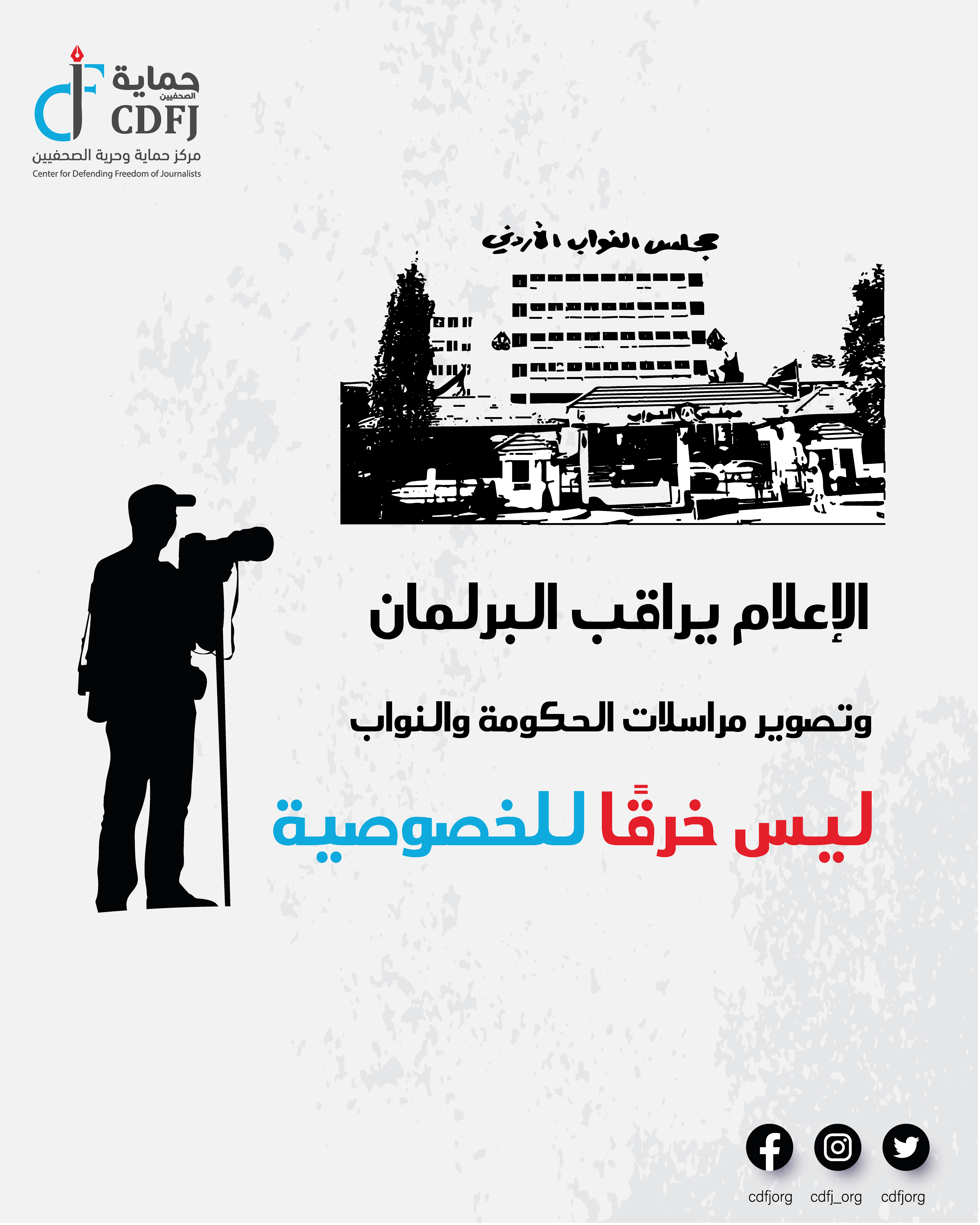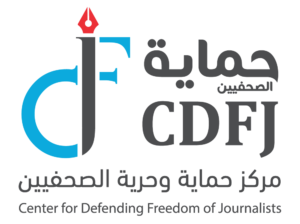
Media Observing the Parliament, and Photographing Correspondences
Media Observing the Parliament, and Photographing Correspondences of the Government and Deputies is not a Breach of Privacy
Center for Defending Freedom of Journalists (CDFJ): Media Observing the Parliament, and photographing correspondences of the government and deputies is not a breach of privacy.
CDFJ criticized the statement of the Speaker of the House of Representatives in which he pledged to act against whoever photographs the privacy of the deputies.
CDFJ considered speaker’s statement as an infringement on the freedom of journalistic work, and restricting to the work of journalists, especially photographers at the Parliament.
In a statement issued by CDFJ, the center affirmed that “The media observes the work of various authorities, which is the key and chief mission of its work, and that is to deliver truth to the public.”
CDFJ clarified that photographing the correspondences, and special documents of the government and deputies in the parliament, in a public session, does not constitute an infringement, or a violation of the constitution, or the legislation in force.
CDFJ emphasized that journalists have not intruded on ministers and deputies at their own houses, or during private sessions to consider photographing a privacy breach, noting that breaching private life matters was defined and described in the penal code, and is not applicable at a public session for the deputy house.
Furthermore, the center pointed out that the statement of the presidency of the House of Representative regarding privacy is not consistent with the law, as deputies’ meetings and discussions are public, as associated matters of written, or photographed details are a public matter, and its journalists’ mission to shed light on. In addition, correspondences between the government and deputies in the Parliament are not confidential documents to demand the stop of photographing and publishing them, or prosecuting the doers.
In its statement, CDFJ further cited that the International Covenant on Civil and Political Rights, in which Jordan signed and ratified does not permit the imposing of measures which may restrict journalists’ work. In addition, any procedure taken by the public authority shall not contradict with Article “19” of the International Covenant on Civil and Political Rights, which states that “Everyone shall have the right to freedom of expression; this right shall include freedom to seek, receive and impart information and ideas of all kinds, regardless of frontiers, either orally, in writing or in print, in the form of art, or through any other media of his choice.”
CDFJ called the House of Representatives to protect the journalists’ right to independent coverage without restrictions, and to stop imposing any measures, or procedures which may limit their observatory role.
In conclusion, CDFJ said that “we appreciate and respect the House of Representatives, and in return the presidency of the house must support the press, not to hinder its work, infringe its independency, and threat to take action and procedures against journalists and media professionals.
CDFJ called on the Parliament Speaker Abdul Karim Al-Doghmi and the Permeant Bureau to engage in dialogues to maximize the protection of media freedom, and navigate ways to elevate the status of the House of Representatives in society.
